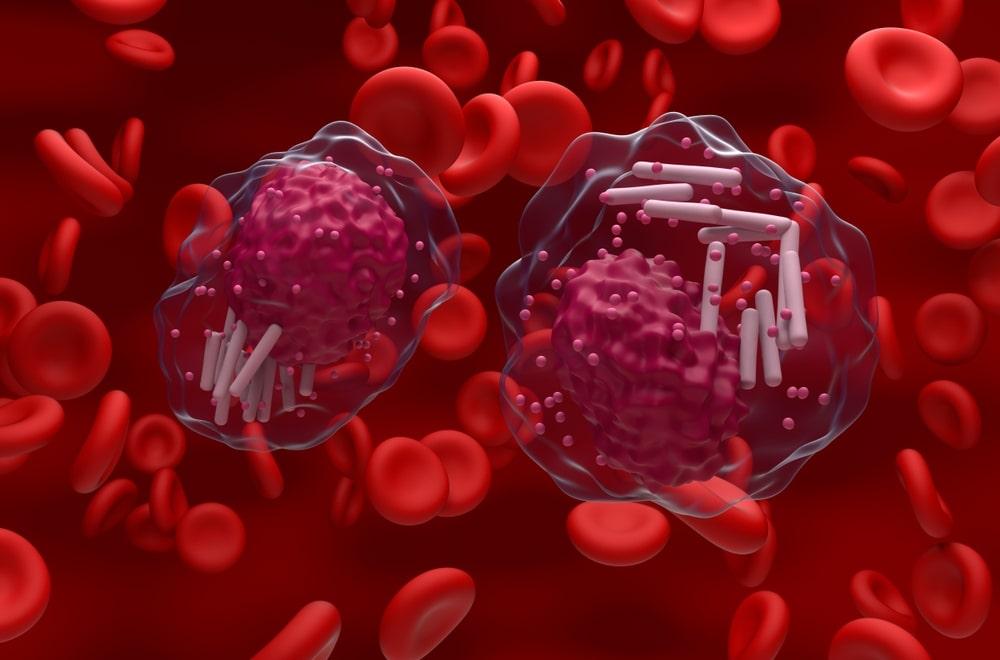Chronic Lymphocytic Leukemia (CLL)/ small lymphocytic lymphoma (SLL) and Mantle Cell Lymphoma (MCL) are two types of blood cancers that affect the lymphocytes, a type of white blood cell involved in the immune response. Both (CLL/SLL)conditions, while distinct, share some similarities in the context of pathophysiology and treatment approaches.
In recent years, a targeted therapy named Acalabrutinib has shown promising results in treating both CLL and MCL. Let`s understand the basics of these 2 diseases, their symptoms, their diagnosis, and how the medicine Acalabrutinib is used in their treatment.
What is Chronic Lymphocytic Leukemia (CLL)?
Chronic Lymphocytic Leukemia (CLL) is a type of cancer that affects the blood as well as bone marrow. It usually progresses slowly and is most common in adults aged over 50. CLL involves an overproduction of abnormal lymphocytes, a type of white blood cell (WBC), which can lead to immune system dysfunction and symptoms like fatigue, swollen lymph nodes, and frequent infections.
Symptoms of CLL:
- Fatigue and weakness
- Swollen lymph nodes
- Weight loss
- Fever and night sweats
- Frequent infections
- Enlarged spleen or liver
Diagnosis of CLL: Diagnosis typically involves blood tests to detect abnormal lymphocytes, a bone marrow biopsy, and imaging studies to assess the extent of lymph node involvement.
What is Mantle Cell Lymphoma (MCL)?
Mantle Cell Lymphoma (MCL) is a rare and aggressive form of non-Hodgkin lymphoma. It originates from the B-cells in the “mantle zone” of the lymph node. MCL tends to spread to the lymph nodes, bone marrow, and other organs. It is most commonly diagnosed in older adults and has a higher prevalence in men.
Symptoms of MCL:
- Painless swelling of lymph nodes
- Fever and night sweats
- Unexplained weight loss
- Fatigue and weakness
- Gastrointestinal symptoms
Diagnosis of MCL: Diagnosis typically includes blood tests, lymph node biopsy, imaging scans, and sometimes endoscopy to check for gastrointestinal involvement.
Acalabrutinib: A Targeted Therapy for CLL and MCL
Acalabrutinib, a second-generation Bruton’s tyrosine kinase (BTK) inhibitor is supplied generically under the brand Acabrunat (manufactured by Natco Pharma). This medicinal product is available in the dosage form of capsules for oral administration. Acabrunat generic works by blocking the BTK protein, which is essential for the survival and proliferation of B-cells, including cancerous ones. By inhibiting BTK, this medicine specifically disrupts the signaling pathways that allow cancer cells to grow and progress.
Benefits of Acalabrutinib:
- Selective Action: The drug is designed to be more selective in targeting BTK, potentially leading to fewer off-target effects and a better safety profile compared to earlier BTK inhibitors like Ibrutinib.
- Effective for CLL and MCL: Clinical trials have shown that it is effective in treating both CLL and MCL, offering patients an important option for managing these diseases.
- Oral Administration: Acalabrutinib is an oral medication, making it convenient for patients to take at home, which can improve adherence and quality of life (QoL).
Acalabrutinib in Treating CLL: This medicine is often used for patients with CLL who have relapsed or are unable to tolerate traditional chemotherapy. Studies have shown that it can lead to significant reductions in lymphocyte count and lymph node size, resulting in prolonged progression-free survival (PFS) for many patients.
In combination with other therapies, such as Venetoclax or Obinutuzumab, treatment with Acabrunat capsules may enhance treatment efficacy, providing additional benefits for CLL patients.
Acalabrutinib in Treating MCL: For MCL, this therapeutic drug is used for patients who have relapsed or have not responded to other treatments. Its targeted mechanism of action makes it a valuable option in a disease known for its resistance to standard therapies.
Clinical trials have reported that the treatment achieves high response rates in MCL patients, offering hope for individuals with limited options. It is especially beneficial for patients who cannot undergo aggressive treatments due to age or health conditions.
Potential Side Effects:
Like all therapeutic drugs, Acalabrutinib can have side effects. Common side effects include headaches, diarrhea, muscle pain, and fatigue. However, these are often manageable with supportive care and dose adjustments.
Patients on this treatment should be monitored for any signs of bleeding, as BTK inhibitors can increase the risk of bleeding in some individuals. Regular follow-ups with healthcare providers are crucial to ensure optimal management and to address any adverse effects promptly.
Accessing Generic Acalabrutinib from India:
Buy Acalabrutinib capsules from Indian Generic Medicines (IGM) at the lowest price. IGM specializes in providing affordable, high-quality generic medicines sourced from reputable manufacturers in India. We ensure that our Acalabrutinib capsules meet strict quality standards and are sourced from trusted suppliers. By choosing IGM, you can access effective cancer treatment without the high cost of branded options. Contact us today via Call/ WhatsApp: +91 8130290915 to inquire about the Acalabrutinib price from India and learn how we can help you access this therapeutic drug you need. Our team is ready to assist you with your pharmaceutical needs.
Conclusion:
CLL and MCL are serious blood cancers that should be managed and treated properly. Acabrunat has emerged as a promising treatment option for both conditions, offering a targeted approach that can help improve outcomes for patients. To know the Acalabrutinib Cost or buy this medicinal product from India, kindly get in touch with a trusted supplier/facilitator/exporter like Indian Generic Medicines (IGM).
Reference:
https://www.calquence.com/


